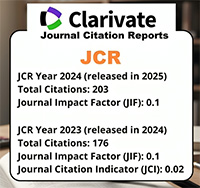The future of the COVID-19 pandemic and the hope of a vaccine
Abstract
In just ten months the COVID-19 pandemic has caused more than 45 million cases and almost 1.2 million deaths worldwide, and the pandemic has already become the worst public health calamity of the last hundred years. Although the influenza pandemics of the past were controlled by herd immunity. Pretending that this would be a valid strategy for the control of the COVID-19 pandemic lacks ethical or scientific support, as it would carry a high hu-man cost in terms of disease and death. The only acceptable strategy is to rationally use a combination of all interventions aimed at interrupting the chain of transmission of the virus, including the constant and large-scale use of social isolation measures, non-pharmacological interventions. With the recent demonstration of the protective efficacy of several candidate vaccines, vaccination should become a major strategy to achieve the control of the infection by SARS-CoV-2. The future evolution of the pandemic will depend not only on the behavior of the virus, but also on the response from the society.
Downloads
References
Esparza J. COVID-19: Una epidemia en pleno desarrollo. Gac Med Caracas 2020;128(1):1-7.
Esparza J. ¿Epidemias y pandemias virales emergentes: Cuál sería la próxima? Invest Clin 2016;57(3):23-235.
Esparza J. Breve historia de las pandemias de influenza, su impacto en Venezuela, y su relevancia para entender la presente pandemia de la COVID-19. Gac Med Caracas 2020;128(2):1-13.
Esparza J. Lessons from history: What can we learn from 300 years of pandemic flu that could inform the response to COVID-19? Am J Public Health 2020;110(8):1160-1161.
Kulldorff M, Gupta S, Bhattacharya J. The Great Barrington declaration. https://gbdecla- ration.org/
Alwan NA, Burguess RA, Beale R, Bhadella N, Bogaert D , Dowd J, Eckerle I, Goldman LR, Greenhalgh T, Gurdasani D, Hamdy A, Hanage WP, Hodcroft EB, Hyde Z, Kellam P , Kelly-Irving M, Krammer F, Lipsitch M, McNally A, McKee M, Nouri A, Pimenta D, Priesemann V, Rutter H, Silver J, Sridhar D, Swanton C, Walensky RP, Yamey G, Ziaud- deen H. Scientific consensus on the COVID pandemic: we need to act now. Lancet 2020; 396 (10260): e71-e72. doi.org/10-1016/S)140-6736(20)32153-X.
Belfort J, Enria D, Giesecke J, Heymann DL, Ihekweazu C, Kobinger G, Lane HC, Memish ZA, Oh M-d, Sall AA, Ungchasak K, Wieler LH, for the WHO Strategic and Technical Advisory Group for Infectious Hazards. Living with the COVID-19 pandemic: act now with the tools we have. Lancet 2020; 396 (10259): 1314-1316. doi:org/10.1016/S0140 6736(20)32117-6.
Bartsch SM, O’Shea KJ, Ferguson MC, Bottazzi ME, Wedlock PT, Strych U, McKinnell JA, Siegmund SS, Cox SN, Hotez PJ, Lee BY. Vaccine efficacy needed for a COVID-19 coronavirus vaccine to prevent or stop an epidemic as the sole intervention. Am J Prev Med 2020;59(4):493-503.





















